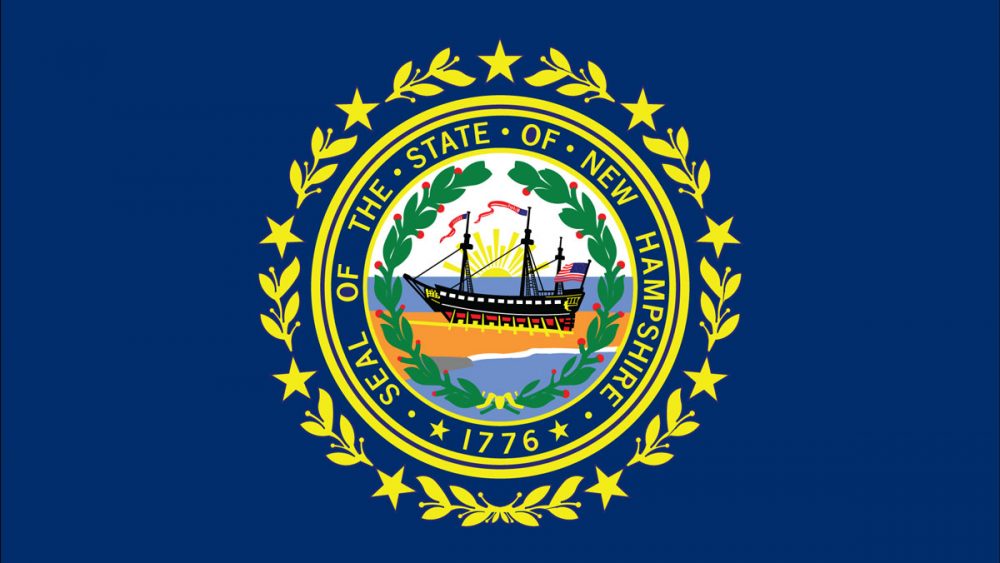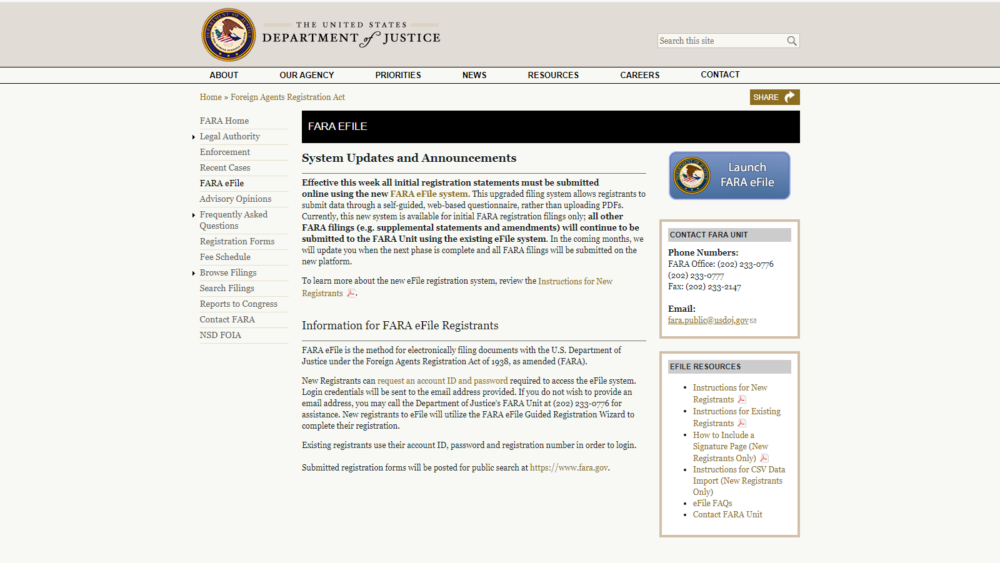August 6, 2024 •
New Hampshire Amends Lobbyist Filing Requirements

New Hampshire state flag
Gov. Sununu signed a bill amending lobbyist reporting requirements. House Bill 1666 requires lobbyists to register and file statements through an online filling system to be developed by the Office of Secretary of State. Lobbyist statements will be due on […]
Gov. Sununu signed a bill amending lobbyist reporting requirements.
House Bill 1666 requires lobbyists to register and file statements through an online filling system to be developed by the Office of Secretary of State.
Lobbyist statements will be due on January 31, May 31, and September 30.
Currently, the statements are due quarterly.
These changes do not go into effect until January 1, 2027.
July 17, 2024 •
Ask the Expert – How Will Changes to Minnesota Lobbying Laws Affect Registering and Filing?
Q: Since Minnesota updated their lobbying law and the changes went into effect at the start of 2024, how will the changes practically affect how lobbyists register and file reports? A: Minnesota passed legislation affecting lobbying registration and reporting that […]
Q: Since Minnesota updated their lobbying law and the changes went into effect at the start of 2024, how will the changes practically affect how lobbyists register and file reports?
A: Minnesota passed legislation affecting lobbying registration and reporting that went into effect on January 1, 2024. To correspond with the changes the Campaign Finance Board (CFB) has updated their lobbyist registration, termination statement, and reporting forms.
Lobbyists should be aware the registration threshold has increased from $250 to more than $3,000 for individuals who spend personal funds to influence government action. Calculating the threshold does not include an individual’s own traveling expenses and membership dues. While the increased threshold allows individuals to track their activities until they reach the higher amount the law expanded the scope of local government lobbying which could lead to more activities being included in determining your registration requirements.
The scope of local government lobbying was expanded by amending the definition of lobbyist to replace all references to metropolitan governmental unit with political subdivision. A political subdivision includes the metropolitan council, a metropolitan agency, including the Metropolitan Parks and Open Space Commission, Metropolitan Airports Commission, and Metropolitan Sports Facilities Commission, and a municipality, including a county, town, city, school district or other municipal corporation or political subdivision of the state authorized by law to enter into contracts. Communication with local officials of a political subdivision will need to be tracked and included in calculating your threshold. The new form released by CFB reflects these changes. Lobbyists will also be required to list the general lobbying categories of interest on registrations.
On the reporting and termination forms, lobbyists will no longer be required to report disbursements. Instead, individuals must affirm whether legislative, administrative, or local governmental action occurred during the reporting period. For each type of governmental action, the lobbyist must include at least one general lobbying category and up to four specific subjects of interest lobbied during the reporting period. For administrative actions, individuals must also include the agency lobbied and revisor number if applicable. Lobbyists must continue to report the amount and nature of each gift, item, or benefit $5 or more, given or paid to any public official, an employee of the Legislature, or a local official, by the lobbyist, an employer, or employee of the lobbyist, and each original source of money in excess of $500 in any year used for the purpose of lobbying.
While the CFB has not released an updated form for the annual report, the new lobbying law requires the total amount spent on each lobbying type during a calendar year to be rounded to the nearest $9,000 instead of the current $20,000. We expect the CFB to release a new form closer to the annual reporting due date.
The information from this response can easily be found on our website in the Lobbying Compliance section of the United States Compliance Laws publication. Please do not hesitate to contact us if you have questions.
October 9, 2020 •
Philadelphia Board of Ethics Announces Training Schedule
The Philadelphia Board of Ethics announced the 2020 lobbying training schedule. The virtual training will cover ethics rules, registering, and filing expense reports with the Board of Ethics. At this time, it is not mandatory to attend one of the […]
The Philadelphia Board of Ethics announced the 2020 lobbying training schedule.
The virtual training will cover ethics rules, registering, and filing expense reports with the Board of Ethics.
At this time, it is not mandatory to attend one of the 2020 lobbying trainings.
However, attendance at a training will be credited when the mandatory training provision takes effect for registered entities.
Registration for the lobbying training can be accomplished at https://zoom.us/meeting/register/tJEqd-6srj0tHdGweXo4WfNtm4z9H7yiRooO.
Questions regarding the schedule or training may be directed to the Board of Ethics at Lobbying@phila.gov or BOE.Training@phila.gov
March 24, 2020 •
No Late Fees for DC Lobbyist Reports due April 15
On March 23, the District of Columbia Board of Ethics and Government Accountability issued a notice to lobbyists informing them penalties will not be issued for late filings due in April because of the coronavirus pandemic. On April 15, lobbyists […]
On March 23, the District of Columbia Board of Ethics and Government Accountability issued a notice to lobbyists informing them penalties will not be issued for late filings due in April because of the coronavirus pandemic.
On April 15, lobbyists are required to file activity reports for the first three months of calendar year 2020.
That deadline has not been changed.
The Office of Government Ethics (OGE) is open and operating on full telework status through April 27.
Filing electronically online is working normally and payments can still be accepted by mail.
However, the OGE will be unable to provide walk-in assistance or to accept deliveries.
In addition to the OGE not assessing late fees on filings that are delayed due to the public health crisis, the agency will also consider other measures to assist registrants during this time, according to the notice.
September 27, 2019 •
FARA Update eFiling Registration System

The U.S. Department of Justice (DOJ) announced, effective this week, all foreign agents filing with the DOJ under the Foreign Agents Registration Act (FARA) must submit their initial registration statements using its new online eFile system. In the DOJ’s announcement, […]
The U.S. Department of Justice (DOJ) announced, effective this week, all foreign agents filing with the DOJ under the Foreign Agents Registration Act (FARA) must submit their initial registration statements using its new online eFile system.
In the DOJ’s announcement, the agency said the “upgraded filing system allows registrants to submit data through a self-guided, web-based questionnaire, rather than uploading PDFs.”
While the current system will only allow for initial registrations, all other FARA filings will continue to use the existing eFiling system until further notice.
FARA is a disclosure statute requiring persons acting as agents of foreign principals in a political or quasi-political capacity to make public disclosure of their relationship with and activities for the foreign principal.
State and Federal Communications, Inc. provides research and consulting services for government relations professionals on lobbying laws, procurement lobbying laws, political contribution laws in the United States and Canada. Learn more by visiting stateandfed.com.


